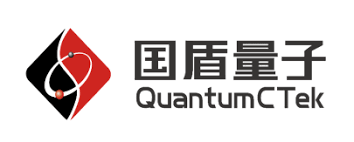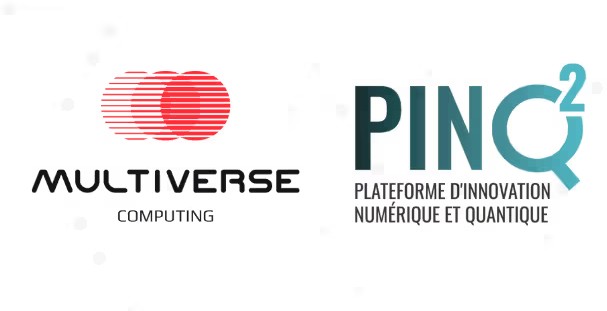Stepping Out of The Lab
The China Academy of Railway Sciences (CARS), a research institute with multi-disciplines and multi-specialties in the China Railway industry founded in 1950, recently approached Wang Chao, general manager of XT Quantech, a quantum technology startup that provides information security solutions, with a plan to bring quantum communication to high-speed rail. Wang, at the time doing a Ph.D. in physics at Shanghai Jiao Tong University, joined XT Quantech when it was founded by his professor, Zeng Guihua, back in 2017, as he believed that quantum encryption was a proven technology “ready to step out of the laboratory.”
All this came about after China’s anti-espionage authorities disclosed that two Chinese information technology companies had been caught providing sensitive data to foreign buyers that could cause leaks in China’s railway communication and threaten the safety of millions of passengers travelling at speeds of up to 350km/h (217.5mph) on what is the world’s largest high-speed rail network.
With a quantum communication market estimated to be worth 32 billion yuan (US$4.82 billion) back in 2018, current predictions project the market to exceed 80 billion yuan in 2023, according to the Beijing-based Qianzhan Industry Research Institute. Things are moving so rapidly, due in part to lower costs, increased demand and the numerous technological breakthroughs quantum communication has seen in recent years. The Chinese government believes it is the technology of the future.

According to Wang, CARS was curious whether quantum-based cryptography could deliver cost-effective protection for the large amounts of data infrastructure it controlled. Another reason is Beijing plans to expand the world’s largest high-speed railway network to 50,000km by mid-decade.

Affordability
“Conventional railway communication systems are plagued with safety loopholes. A quantum security solution offers improved protection with [theoretically] unbreakable equipment and trusted repeaters,” Wang said back in June. “And the technology has become more affordable for industrial buyers as private companies in this area are committed to providing cheaper and smaller devices.”
He also said that major industrial players like China’s biggest telecommunication service providers, power grid companies and metro operators began to express interest in XT Quantech’s products last year, which came as a surprise to Wang because, for many years, firms like XT Quantech had provided services mostly to the government.
Pan Jianwei
China’s story in commercializing quantum communication goes back to 2009, when Professor Pan Jianwei, China’s preeminent quantum scientist, along with a few colleagues at the University of Science and Technology of China, co-founded a startup that would go on to become QuantumCtek, now a publicly traded company valued at more than 8 billion yuan.
Qasky Quantum, a startup headquartered in Wuhu, Anhui province, soon followed, founded by Professor Guo Guangcan, a leading quantum physicist with the Chinese Academy of Sciences Key Laboratory of Quantum Information.
No one believed QuantumCtek and Qasky Quantum were commercially viable; yet all these years later, Pan and Guo have proven people wrong, with both startups being profitable, thanks to some mega projects launched by the Chinese government.
These included a 560-million-yuan project to build a quantum communication line between Beijing and Shanghai which received central government backing in 2013, serving as a testbed for the application of many quantum devices developed by QuantumCtek and other startups, and the companies used it to fine-tune their products and foster talent.
Micius’ Legacy
“Perhaps no other country has been able to spend as much money as China to build Micius [the world’s first quantum satellite], or to build quantum networks that connect distant cities, like the Beijing-Shanghai quantum link,” one Guangdong-based quantum physicist, who wished to be anonymous, said to the South China Morning Post.
China’s achievements in quantum communication were partly due to its rapid economic development, the physicist said. Before 2018, provincial government funding for a project rarely topped 8 million yuan, but many projects since then have received as much as 65 million yuan, he added.
While the rise in quantum communication in China has been caused in some way due to its rapid economic development, local governments have also built incubators to attract startups and entrepreneurs that offer free rent and facilities, and at times, funding, too.
One example is Guangdong, which has built industrial estates where scientists with innovative ideas are welcomed in cities including Zhuhai, Shenzhen and Zhaoqing.
For more than twenty years — starting in 1999 — laboratories at Shanghai Jiao Tong University have conducted research across the full spectrum of quantum communication, from the underlying optical parts to other hardware, software, and algorithms, said Wang, applying for tens of millions of yuan worth of funding from the government every year, and financial support on such a scale was rare overseas.

Wang added that an outstanding student in the laboratory he was working in went to the University of Melbourne in Australia to study for his Ph.D. “But later he told me that the funding for his laboratory was far less than that in China, at least compared with Shanghai Jiao Tong University,” Wang said. “Without enough funding, some experimental research projects had difficulty carrying on.”
Top Infrastructure
Thanks to the money, talent and infrastructure, China has laid a solid foundation for the engineering application of quantum communication. Chinese scholars did not come up with revolutionary theories often, Wang went on, but they impressed their overseas peers with their speed in implementing them.
Something which the Guangdong-based quantum scientist has witnessed too, saying more local government officials have tried to encourage him to start a company and turn his research findings into products over the past two years. But he chose to remain in the laboratory, despite the supportive policies and venture capital being offered.
He said he was more interested in developing basic components like modulators and detectors that could be used in general communication systems, including both conventional and quantum equipment.
Secure quantum communication was far from perfect, he went on, and a lot of quantum encryption applications available on the market needed improvement, before adding, however, that its rapid development in China would stimulate the entire industry chain, including detection chips, optical integration, materials, components, and overall system design.
“I have confidence, even though there will be lots of challenges ahead because more and more talent with good training will enter the industry,” he said.
For more market insights, check out our latest quantum computing news here.
















